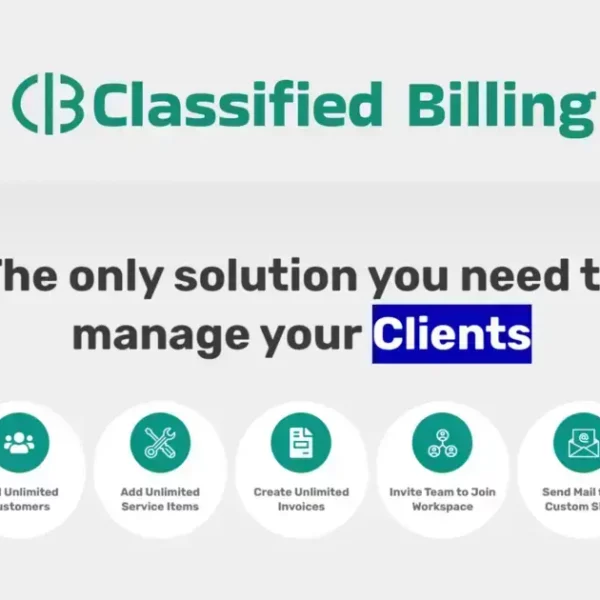CRM software pricing is affected by features, number of users, and support options. To find affordable solutions, consider free trials, compare different options, and assess total cost ownership to ensure the best return on investment for your business.
CRM software price is an essential factor for businesses striving to improve their customer relationships while managing costs effectively. In today’s competitive landscape, understanding the different pricing structures can help you choose the right tools without breaking the bank. This article will guide you through the various aspects of CRM software pricing, so you can make informed decisions that suit your budget and needs.
Understanding CRM Software Pricing
Understanding CRM Software Pricing is crucial for businesses looking to streamline their customer relationship management effectively. CRM software prices can vary greatly based on features, scalability, and support options. Companies must familiarize themselves with the different pricing models available to make an informed choice.
Types of Pricing Models
There are typically three main types of pricing models for CRM software: subscription-based, one-time purchase, and tiered pricing. Subscription-based models often charge a monthly fee that covers updates and support, making it a flexible option for many businesses. On the other hand, a one-time purchase may require a larger initial investment but can be more cost-effective in the long run if you plan to use the software for many years.
Factors That Influence CRM Software Prices
Several factors can impact the pricing of CRM software. These include the number of users, level of customization, integration capabilities, and additional features such as analytics or marketing automation. Businesses should assess their specific needs to determine which features are necessary and how much they should budget accordingly.
Evaluating the Total Cost of Ownership
When considering CRM software pricing, don’t forget to evaluate the total cost of ownership (TCO). This includes not just the subscription or purchase price, but also costs related to implementation, training, and ongoing maintenance. Calculating the TCO will help you get a clearer picture of your investment.
Researching and Comparing Prices
Take the time to research various CRM providers. Online reviews, comparisons, and case studies can provide insights into the performance and value of the software. Additionally, many vendors offer demos and free trials, which can be a helpful way to gauge the software’s fit with your business needs before committing to a purchase.
Factors Influencing CRM Software Price

Factors Influencing CRM Software Price play a significant role in determining which software solution is best for your business needs. Understanding these factors can help you make a smart purchasing decision.
1. Features and Functionality
The features included in a CRM software package can greatly impact its price. Basic features such as contact management and task automation may be included at a lower price point, while advanced features like marketing automation and analytics tools can drive the price up. Carefully consider what features you truly need.
2. Number of Users
Many CRM providers offer pricing plans based on the number of users or seats. As your team grows, the cost may increase depending on how many users you want to add. It’s essential to verify how user counts affect pricing to avoid unexpected expenses.
3. Customization Options
Customization is another important factor. If your business requires a tailored solution, expect to pay more. Custom integrations and modifications can add to the base price. Evaluate how much customization you need and if the software can accommodate these changes.
4. Support and Maintenance
Support options can also influence CRM software pricing. Some vendors include basic support in their pricing, while others charge extra for 24/7 customer support or dedicated account management. Make sure to understand the level of support you will receive, as this can affect your overall satisfaction and productivity with the software.
5. Deployment Method
The deployment method you choose—cloud-based or on-premises—can also impact the price. Cloud solutions typically have lower upfront costs and offer flexible subscription options, while on-premises solutions often require significant upfront investments. Choose the method that aligns best with your budget and long-term goals.
Comparing CRM Software Costs
Comparing CRM Software Costs is essential for businesses looking to invest in customer relationship management solutions. To make an informed choice, it’s important to analyze various aspects of CRM pricing structures.
1. Analyze Different Pricing Tiers
Most CRM software providers offer multiple pricing tiers based on features and user levels. It’s crucial to analyze these tiers to understand what each package includes. Look for core features like contact management, sales automation, and reporting, and see how they vary between prices.
2. Calculate Cost per User
When comparing CRM costs, consider the cost per user. Some software might appear cheaper but could charge significantly more as you add users. Make sure to factor in how many people will need access to the system and what the price implications are as your team expands.
3. Consider Long-Term Contracts vs. Monthly Payments
Some CRM providers offer discounts for long-term contracts. While monthly payments may seem more manageable, calculate the total cost if you sign a yearly agreement. This can often save you a considerable amount in the long run.
4. Evaluate the Hidden Costs
Don’t forget to look for hidden costs that may come with a CRM system. These could include setup fees, maintenance costs, or charges for customer support. Understanding the complete cost structure is essential to avoid surprises later.
5. Read Reviews and Gather Comparisons
Before making a decision, conduct thorough research by reading user reviews and comparisons. Websites that aggregate reviews can provide insights on user experiences regarding cost and value. This data can help you choose a CRM solution that offers the best return on investment for your business needs.
Where to Find Affordable CRM Solutions

Where to Find Affordable CRM Solutions is a common question for businesses looking to optimize their customer relationship management without overspending. There are various avenues to explore when searching for budget-friendly CRM options.
1. Online Research and Reviews
Start by conducting thorough online research. Websites that specialize in software reviews can give you insights into various CRM solutions. Look for platforms that feature user reviews to help you determine the best value for your budget.
2. Free Trials and Demos
Many CRM providers offer free trials and demos of their software. These allow you to explore the features and capabilities before making a commitment. Utilize these trials to see if a CRM solution fits your needs without incurring any costs.
3. Comparison Websites
Using comparison websites can help you evaluate different CRM systems based on pricing, features, and user ratings. By comparing several options side by side, you can identify the most affordable solutions for your business requirements.
4. Networking and Recommendations
Reach out to your professional network or join business forums to get recommendations for affordable CRM software. Other business owners can provide valuable feedback based on their experiences with various vendors, helping you avoid costly mistakes.
5. Consider Open Source Options
Don’t overlook open source CRM solutions that can be customized to fit your needs. While these may require some technical know-how to set up, they can often provide powerful functionality at a lower cost than traditional SaaS options.
Crafting a Budget for CRM Software
Crafting a Budget for CRM Software is an important step in deciding which customer relationship management solution is right for your business. Creating a budget helps ensure that you make informed financial decisions and choose the best software for your needs.
1. Determine Your Needs
Start by identifying your basic requirements for CRM software. Make a list of essential features like contact management, reporting tools, and customer support options that your business needs. This will help you understand what you are willing to invest in.
2. Analyze Total Cost of Ownership
Understanding the total cost of ownership (TCO) is essential for budgeting. This includes not only the price of the software but also ongoing costs such as support, maintenance, and updates. Be sure to factor these into your overall budget.
3. Set a Monthly Spending Limit
Once you have a clear picture of your requirements and potential costs, set a monthly spending limit on your CRM software. This limit helps maintain control over your finances and ensures you’re not overspending on features that you might not use.
4. Consider Future Growth
Don’t just think about your current needs; also consider the potential for future growth. As your team expands, you may need to add more users or features. Make room in your budget for these expected changes to avoid financial strain later on.
5. Compare Options
Finally, take the time to compare different CRM options based on your budget. Look at how the costs align with the features and functionality each solution offers. This comparison will help you find the best value for your investment.
In Conclusion: Making the Right Choice for CRM Software
Investing in CRM software is a crucial step for any business looking to enhance customer relationships and streamline operations. By understanding the factors influencing CRM software pricing, comparing costs, and crafting a careful budget, you can find the right solution that fits your needs.
Keep in mind the diverse options available, from subscription models to open source solutions. Take advantage of free trials and do thorough research to ensure you choose wisely.
With the right CRM system in place, your business can improve productivity, foster better customer connections, and ultimately drive growth. Don’t underestimate the impact of a well-chosen CRM software on your overall success!
FAQ – Frequently Asked Questions About CRM Software Pricing
What factors influence the price of CRM software?
The price of CRM software is influenced by features, number of users, customization options, support, and the deployment method.
How can I find affordable CRM solutions?
You can find affordable CRM solutions through online research, comparison websites, free trials, and by seeking recommendations from your network.
What is the total cost of ownership (TCO) for CRM software?
TCO includes the purchase price of the software as well as ongoing costs such as maintenance, support, and updates.
How can I determine my budgeting needs for CRM software?
Start by identifying your essential needs, analyze all potential costs, set a spending limit, and consider future growth.
Are there free or open-source CRM options available?
Yes, many free and open-source CRM options are available, which can provide robust features without the high costs of traditional software.
Can I try CRM software before purchasing it?
Most CRM providers offer free trials or demos, allowing you to test the software and its features before committing to a purchase.




